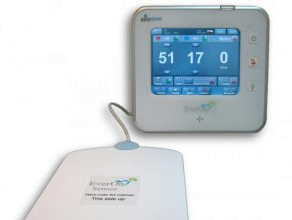Elizabeth Stewart, M.D., of the Mayo Clinic in Rochester, MN, USA, was recently honored for her research on MR-guided focused ultrasound therapy and its effects on future fertility in women with uterine fibroids. On September 8, the Royan Institute – a non-profit, non-governmental research institute in Tehran, Iran – presented Stewart with a Royan International Research Award in the category of Female Infertility and Reproductive Imaging.
Elizabeth Stewart, M.D., of the Mayo Clinic in Rochester, MN, USA, was recently honored for her research on MR-guided focused ultrasound therapy and its effects on future fertility in women with uterine fibroids. On September 8, the Royan Institute – a non-profit, non-governmental research institute in Tehran, Iran – presented Stewart with a Royan International Research Award in the category of Female Infertility and Reproductive Imaging.
Stewart’s study, entitled “Safely Extending Focused Ultrasound Surgery for Uterine Leiomyomas to Women Who Desire Future Pregnancies,” provides solid evidence that focused ultrasound could be a viable option for women who want to preserve their fertility after fibroid treatment. Although there are other fibroid treatments that do not interfere with fertility, FUS is the only noninvasive option.
Among the women in the study, 41 percent had a live birth following focused ultrasound treatment, and another 20 percent had an ongoing pregnancy beyond 20 weeks at the time of report. Sixty-four percent of the women were able to have a vaginal delivery. Importantly, there were no low-birth-weight infants and no pattern of complications for the baby or the mother.
Study results also suggested that focused ultrasound is comparable to uterine artery embolization (UAE), a minimally invasive procedure that blocks the blood supply to fibroids, in terms of the length of time to become pregnant following treatment. In some aspects of the study, FUS fared better than UAE – with higher delivery rates and lower cesarean section rates.








